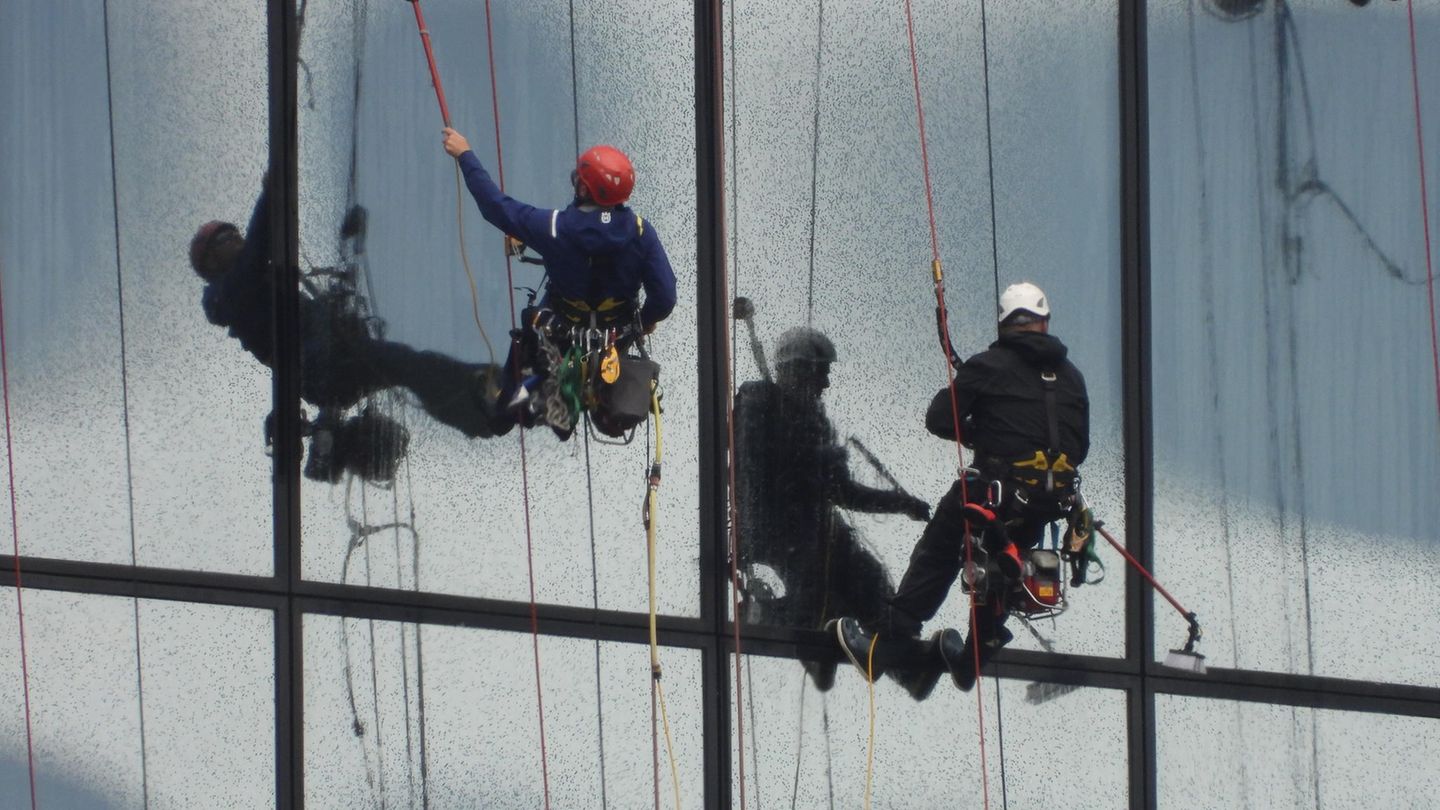Although their work is essential, many cleaners struggle to survive. Building cleaners are now demanding a fifth more salary in collective bargaining.
Hard work that is far too little appreciated – this is how a cleaner who ensures cleanliness in a company in Berlin describes her everyday life. This morning, the 55-year-old* joined the union, as she tells ntv.de. On this day, in what is now the third round of collective bargaining, IG Bau is demanding three euros more per hour and a 13th salary for building cleaners. The 55-year-old from Berlin receives the previous industry minimum wage of 13.50 euros per hour, meaning she earns around 2,300 euros gross per month full-time. To supplement her wages, she also has a mini-job as a cleaner. “Like most.”
You’re lucky, you don’t live alone. Single people could hardly afford the rents on their salary, which have risen significantly even in less popular parts of the city. Once you retire, it will be difficult to be a cleaner. The Berliner uses her wages to pay, among other things, for additional dental insurance; in her eyes, “conditions like those in America” have now been achieved. Now she is ready to strike if there is no agreement this time either.
The union’s motto in the negotiations: “We deserve it.” According to IG Bau, of the approximately 700,000 building cleaners in Germany, around 500,000 receive the minimum wage of 13.50 euros, which is binding for the entire industry. The majority of employees are therefore women. The general minimum wage is currently 12.81 euros per hour.
Wages for cleaning workers far below other industries
Building cleaners also receive surcharges for work on Sundays, public holidays and at night between 10 p.m. and 5 a.m. If a qualification or three years of vocational training is required for cleaning work, salaries rise to up to 17.69 euros per hour. For skilled workers and glass and facade cleaning, the industry minimum wage is currently 16.70 euros per hour. Journeymen with a trainer aptitude test achieve 18.92 euros, while preparatory workers in glass and exterior cleaning currently have the highest wage group at 20.14 euros per hour.
According to the employment agency, the median monthly salary of full-time building cleaners is a good 2,500 euros gross – half earn more, half earn less. A quarter of employees earn 2,211 euros or less, a quarter earn 2,927 euros or more. Men get around 2,630 euros, which is over 300 euros more than women with just under 2,300 euros. There are also regional differences; exceptionally, the highest median salary is not paid in the southwest, but in Hamburg and North Rhine-Westphalia at around 2,700 euros.
According to its own calculations, the job portal Stepstone achieves significantly higher salaries: nationwide, almost 2,900 euros gross per month. However, this is also far less than what is paid in other professions. Across all industries, the median salary last year was just under 3,650 euros per month. According to the Federal Statistical Office, the average gross salary of full-time employees was just under 4,500 euros.
Employers reject “excessive demands”.
The employers in the building cleaning trade accuse the employee representatives in collective bargaining of playing for time and speak of an “excessive demand”. “We were hoping for a minimum level of economic realism from the union in the second round of collective bargaining: While inflation is falling, we are experiencing stagnation in the German economy, a slump in industry, which is currently dramatically evident at VW, for example, and a gloomy business climate in the country service sector,” emphasized Christian Kloevekorn from the Federal Guild Association of the Building Cleaning Trade (BIV) in September.
Since there are no American conditions in the collective bargaining agreements here, the union is unlikely to prevail with its demand for a 22 percent increase in the industry minimum wage. Nevertheless, the 55-year-old cleaner from Berlin is worried that employers could – as she says after the last wage increase – reduce the working hours of employees. “Then there would be even fewer full-time positions,” she complains. “Cleaning takes time.”
*The name is known to the editors.
This article first appeared at ntv.de
Source: Stern




